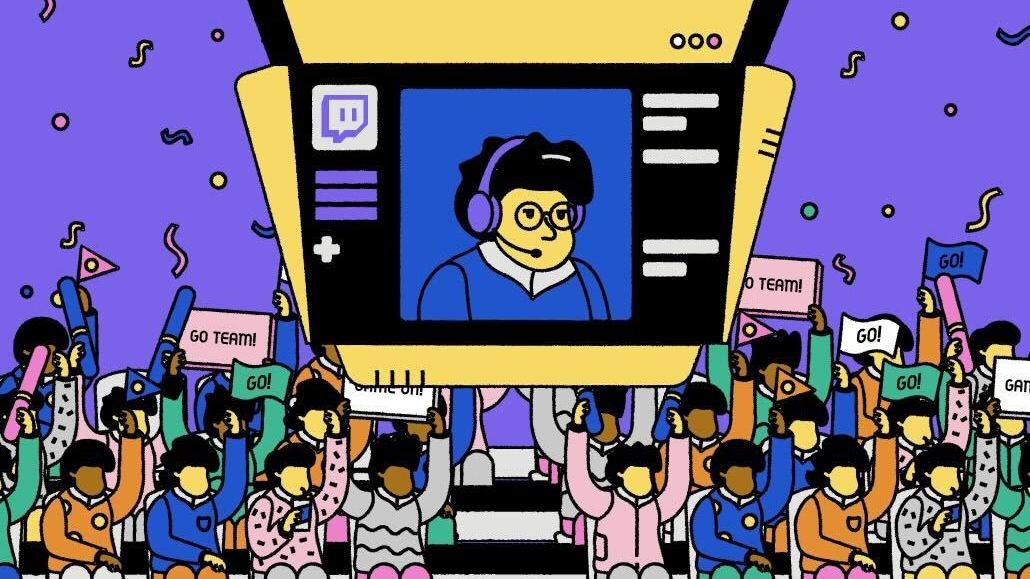Save 50% on a 3-month Digiday+ membership. Ends Dec 5.
Alienware wants to make endemic esports brand partnerships cool again

Esports organizations have spent years trying to evolve away from endemic brand partners in favor of blue-chip, non-endemic sponsors. But as sponsorships in the space grow fewer and farther between, endemics are becoming more attractive partners for esports teams large and small — and brands are taking advantage.
As they jockeyed for brand partnerships during the rise of competitive gaming, many esports organizations looked down their noses at partnerships with gaming-endemic brands, instead setting their sights on non-endemic partners. In their pitch documents and investor materials, teams such as FaZe Clan openly discussed plans to replace endemic sponsors including G Fuel and SteelSeries with mainstream brands like DoorDash and McDonald’s.
Over the past year, however, this script has flipped. Marketers have grown more wary of the returns on esports partnerships, with some, like BMW, explicitly pulling away from the space. This means a potential opening for tried-and-true endemic brands like gaming hardware brand Alienware to strengthen their connections to esports fans — and the teams they cheer for.
“I understand why leaders in the esports space can be really hungry for non-endemic brand partnerships; in a lot of ways, non-endemic partnerships are a legitimizing factor for those organizations,” said Chris Saylor, director of global gaming campaigns at Alienware parent company Dell Technologies. “I’ll say this: We have no issues finding partnerships, finding people that would like to work with us within the endemic space.”
Over the past year, Alienware has teamed up with esports orgs like Team Liquid and CLG, as well as prominent gaming creators such as Ludwig Ahgren and Caylus Cunningham. “It’s literally gaming equipment, and I game every day,” Cunningham said. “So it’s just super easy.”
Alienware’s 12-year partnership with Team Liquid — the longest-standing sponsorship of an esports organization by any brand — demonstrates how endemic brand partnerships can be beneficial for both parties involved. Alienware provides Team Liquid with much of its hardware, including all of the gaming setups at the team’s Utrecht training facility, and Liquid’s competitive gamers give Alienware feedback to help fine-tune their products. (Of course, Alienware also pays Team Liquid a sponsorship fee. Representatives from both companies declined to share the financial details behind the agreement.)
“When you walk into one of our training facilities, all of our staff and players use Alienware machines,” said Team Liquid co-CEO Steve Arhancet. “This includes video editors, graphic designers, programmers, developers and data analysts, and they’ve all been served well by many different Alienware products.”
Ad position: web_incontent_pos1
Team Liquid’s approach to endemic brand partnerships contrasts with the non-endemic one taken by FaZe Clan and many other large esports organizations. Liquid has its fair share of non-endemic sponsors, and it welcomes their collaboration — but it views endemic brands as ideal partners due to their native understanding of the space.
“For the non-endemic brands, they often use an agency to give them that kind of input, because they don’t have it in-house, or they’ll have that knowledge in lower levels of the organization, but it’s harder to get the higher levels of the organization,” said Jason Luijckx, director of EMEA partnerships at Team Liquid. “There’s benefits to working with both; for us, it’s not that endemic or non-endemic are a step above. I think they’re just a different ball game, and both are equally important.”
The love affair between Alienware and Team Liquid does not mean that every esports organization is suddenly going to be all-in on wooing the endemic brands they once spurned. These days, esports organizations’ varying level of interest in endemics is tied to their broader brand identities — which, for many teams, are rapidly diverging. Team Liquid’s embrace of nerd culture has allowed the org to maintain its ties to endemic brands like Alienware without giving up the potential cool factor that comes with larger, mainstream sponsors.
“I think FaZe sees esports as a vehicle to make a splash in broader lifestyle and streetwear culture, whereas if you look at Team Liquid’s brand, we’ve embraced being nerds,” Luijckx said. “So we have Marvel as a partner, we have Star Wars as a partner, we have anime. Pool parties and jewelry and Snoop Dogg — that’s not really our jam.”
As for Alienware, the brand believes its partnership with a major esports organization like Team Liquid comes with more concrete benefits than it would for a non-endemic brand making similar moves. In addition to the aforementioned feedback from Team Liquid players, Saylor said, Alienware is already a well-known brand to most gamers, allowing it to focus more on building positive associations with the gaming community than on simply raising its profile.
Ad position: web_incontent_pos2
“These other brands are attempting to do that, but we have no awareness problems with our audience. People who watch esports, who are interested in esports, know Alienware,” Saylor said. “So our challenge in these types of partnerships is to show up in a way where, maybe, we can evolve people’s opinion of Alienware for the better.”
More in Marketing

Ulta, Best Buy and Adidas dominate AI holiday shopping mentions
The brands that are seeing the biggest boost from this shift in consumer behavior are some of the biggest retailers.

U.K. retailer Boots leads brand efforts to invest in ad creative’s data layer
For media dollars to make an impact, brands need ad creative that actually hits. More CMOs are investing in pre- and post-flight measurement.
Ad position: web_bfu



